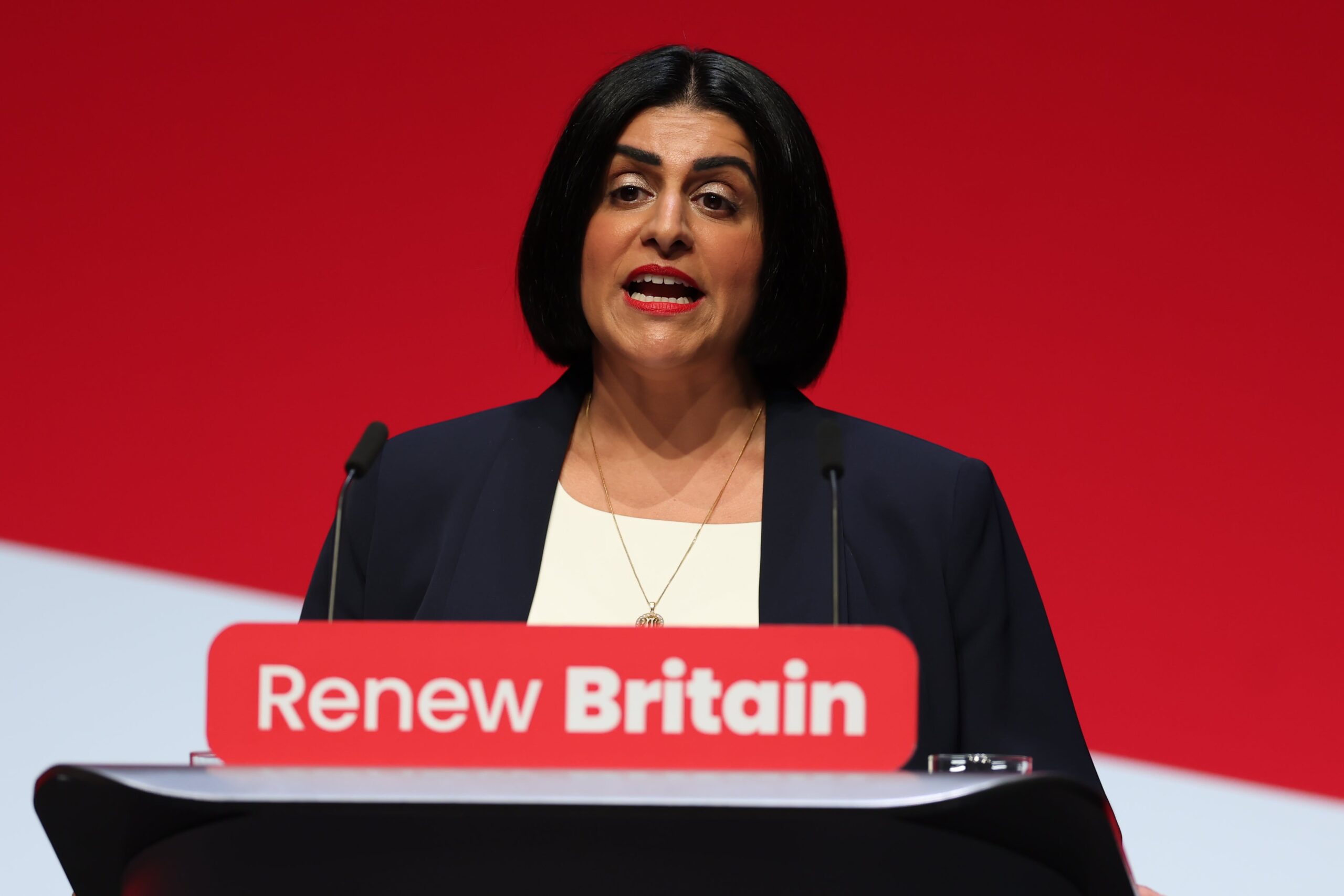Labour has vowed to strengthen the requirements for indefinite leave to remain (ILR) in the UK, in an apparent response to Reform’s pledge to scrap the policy entirely.
Sir Keir Starmer called Nigel Farage’s plan to revoke the rights of thousands of people to live in Britain “racist” and “immoral”, with newly appointed home secretary Shabana Mahmood laying out the government’s alternative to the proposals.
Labour has already pledged to introduce tough new restrictions on ILR, but now goes further in a move many will see as a reaction to the plan laid out by Reform last week. Recent polling shows the government’s popularity is trailing behind Mr Farage’s party.

Speaking at Labour’s conference in Liverpool, Ms Mahmood said: “The British people have always welcomed those who come here, who work hard and who give back.
“Time spent in this country alone is not enough. Just like my parents, you must earn the right to live in this country for good. If you do, I know this country will welcome you.”
Here’s what you need to know about ILR, and what Labour and Reform are proposing over the policy.
How does indefinite leave to remain currently work?
Indefinite leave to remain is how most migrants settle in the UK, wherever they come from. It gives them the right to live, work and study in the country permanently, as well as access benefits where eligible.
It also enables their family to migrate to the UK under certain conditions.
In most cases, ILR can be applied for after five years of living and working in the UK. Depending on visa type, the applicant may also need to meet certain salary or financial requirements.

For most workers, this will be at least £41,700 per year, or the “standard going rate” for the type of work you’ll be doing, which could be higher. After securing ILR, a person can generally apply for British citizenship after 12 months.
In May, Labour pledged to introduce tough new restrictions on ILR, meaning most applicants will need to be in the UK for ten years before they can apply – up from five – as well as shortening the list of eligible jobs.
What are Labour’s ILR proposals?
Ms Mahmood’s speech on Monday focused on moving ILR to a more “contribution” based system. The home secretary said that some migrants will be able to “earn earlier settlement” before ten years under the system, while others will be “forced to wait longer if they are not contributing enough”.
The requirements she is planning to introduce for migrants to earn ILR are:
- Being in work
- Making national insurance contributions
- Not being on benefits
- Learning English to a high standard
- Not having a criminal record
- “Truly” giving back to your community, for example, by volunteering

Responding to the plans, Enver Solomon, chief executive of the Refugee Council, said the proposal to penalise migrants for claiming benefits risks making it harder for refugees to integrate.
“We know that refugees want to feel part of, and give back to, the country that has provided them with safety,” he said, adding that “it is much harder” for a refugee to come to the UK without relying on benefits at all.
He said: “By punishing refugees for needing help, we are saying to them that no matter how hard you work in the future, you’ll never have a safe permanent home in Britain. This is the opposite of encouraging integration.”
What is Reform proposing to do?
Reform has said it would scrap ILR, even for those currently residing in the UK on it. Instead, a new visa with far stricter requirements would need to be successfully applied for and renewed every five years.
The policy would reportedly also see the salary threshold to apply increased to around £60,000, nearly double the median UK salary (£31,602).
The plans would throw the lives of the estimated 430,000 people holding ILR into uncertainty, despite many having lived in the UK for decades. They would be forced to reapply and would face deportation if they do not qualify under the new rules.
It would also see the rights and freedoms they enjoy restricted, as access to NHS services or benefits would be rescinded. The new visas would require advanced English, with strict new limits on partners and family members being able to join.
Reform shared disputed figures that the policy would save more than £200bn.
It added that the move would undo the “Boris wave” of migrants ushered in by the former Conservative prime minister. This refers to around 800,000 migrants who came to the UK under “relaxed” post-Brexit migration rules introduced by Boris Johnson’s government, and who will soon begin to qualify for permanent residence.
